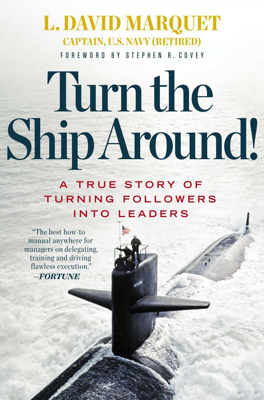“Mistakes Just Happen!”
Incident Review and Introduction of Mechanism
During a critique meeting aboard the USS Santa Fe, David Marquet addresses a red tag violation involving a well-intentioned petty officer. The focus of the session was not to blame the individual but to understand the underlying issues leading to such errors and prevent their recurrence.
Critique and Shift in Perspective
The following points were discussed and conclusions drawn: - Existing Discipline Measures: Traditional discipline, including Captain's mast for red tag violations, was common but Marquet sought an alternative approach that emphasized understanding over punishment. - Engagement and Inquiry: The meeting opened with a comprehensive review of associated documents and procedures. The aim was to develop a method for reducing mistakes by enhancing the conscientiousness of actions, rather than just increasing supervision or retraining, which were deemed ineffective.
New Mechanism: Take Deliberate Action
A new mechanism called "Take Deliberate Action" was proposed to help reduce operational mistakes. This involved: - Action Before Execution: Personnel were encouraged to pause, verbalize, and gesture what they were about to do before actual execution, ensuring a mindful approach to their tasks. This method aimed to prevent automatic or unconsidered actions.
Challenges in Implementation
- Perception of Deliberate Action: There was an initial misconception among the crew that this mechanism was merely for show, for supervisors or inspectors, rather than a genuine error-prevention tool.
- Training versus Reality: The crew had to be persuaded that deliberate action was crucial not only during training but especially in real operational situations where errors could have serious consequences.
Broader Application and Benefits
- Preventing Mistakes: Deliberate action proved significantly effective in reducing operational errors, with benefits observed during high-stakes operations and administrative tasks alike.
- Building a Resilient Organization: The practice of deliberate action helped in forming a resilient team where potential errors were corrected either by the individual or their teammates before causing any impact.
Reflective Questions
- Challenges and effectiveness of implementing a deliberate action system across various company departments are considered, prompting leaders to assess how such a mechanism might influence error rates and team behavior in their specific environments.
By emphasizing understanding and preventative action over traditional punitive measures, Marquet steers the Santa Fe crew toward greater operational excellence and responsibility.
